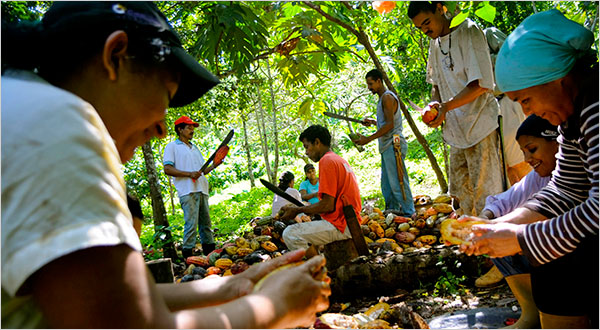
Venezuela cocoa trader Freddy Galindo has battled highway robberies, kidnappings of family members and declining quality in his 19 years spent on exporting the nation’s legendary beans.
This year’s harvest brought a new worry: meddling by the socialist government.
He said trucks filled with beans leaving his warehouse in central Venezuela were stopped by soldiers at checkpoints and held for days; drivers were forced to unload some cargo at government warehouses. Mr. Galindo claims that some 87 tonnes of his cocoa, worth $1,30,000, were missing when the trucks were finally released. Other traders here in Miranda State, Venezuela’s number two producing region, have reported similar delays and confiscations in recent months.
Government officials say the checkpoints are meant to nab cocoa thieves, and that some beans have been seized by the State to settle owners’ delinquent tax bills.
But the confrontations have unnerved growers and traders who fear their industry is being targeted for a government takeover.
Officials are “putting pressure on private businesses to deliver them goods at no cost,” said Mr. Galindo, owner of Comercializadora Freyra in the hamlet of San Jose de Barlovento, as workers around him packed dry, reddish brown cocoa beans into burlap sacks. He said he was given no explanation for the seizure of his cocoa.
Nationalisation has crippled Venezuela’s oil and manufacturing sectors as well as agricultural industries, including coffee and sugar.
The private sector still controls most of the cocoa trade. But with crude output collapsing amid an economic crisis, the government has increased its emphasis on alternative export industries such as cocoa and gold.
Miranda state, this year, established a government-run company where farmers can sell their beans for export. It has exported 500 tonnes of cocoa so far, according to Miranda Governor Hector Rodriguez, around 5% of the country’s annual exports.
While State officials have not forced local cocoa growers to use its organisation, many fear the government’s entry into their industry is a preview of things to come.
“It will be like sugar cane. They expropriated everything, and nowadays there is no sugar,” said Freddy Padron, 50, who farms cocoa on an 11-hectare (27-acre) plot near San Jose. “All of this is at risk now.”